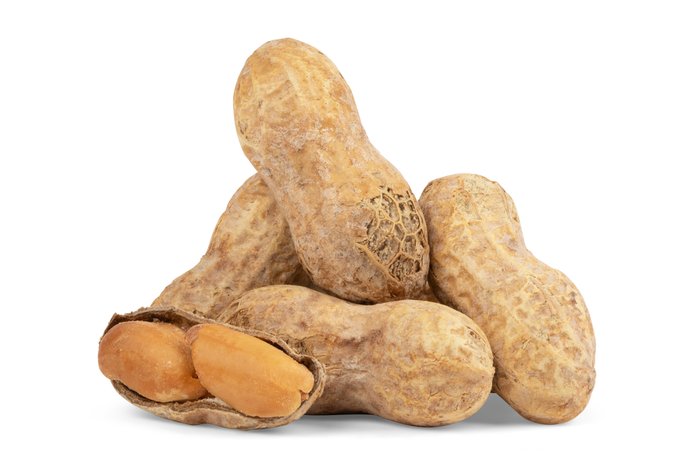Effective Ways to Use Coconut Sugar in Your Keto Diet

Apply Now


Effective Ways to Use Coconut Sugar in Your Keto Diet
Coconut sugar has gained popularity as a natural sweetener, particularly among those following low-carb or ketogenic diets. Many wonder, "Is coconut sugar keto-friendly?" The answer is nuanced. While coconut sugar is indeed a lower-glycemic alternative to traditional sweeteners, its carbohydrate content means that careful consideration is necessary when incorporating it into a keto meal plan. This article will explore the effective ways to utilize coconut sugar in your keto diet, examining its nutritional value, benefits, and potential drawbacks. Coconut sugar can serve as a satisfying substitute for other sweeteners in coffee, baking, and even in beverages. It’s important to understand which alternatives might fit better within your macros and how coconut sugar compares to erythritol and stevia, two popular keto sugar substitutes. Readers will gain insights into the flavor profile of coconut sugar, its caloric content, and how it affects blood sugar levels. By the end of this article, you’ll be equipped with not just recipes but also practical applications of coconut sugar in your ketogenic lifestyle.Understanding Coconut Sugar’s Nutritional Value
Coconut sugar, derived from the sap of coconut palm flowers, is often lauded for its natural properties and lower glycemic index compared to traditional cane sugar. The glycemic index (GI) of coconut sugar sits around 54, which is lower than regular sugar (estimated GI of 65) but higher than other keto-friendly sweeteners like erythritol or stevia. When analyzing coconut sugar's nutritional content, it is essential to note its carbohydrates. One tablespoon contains approximately 13 grams of carbs, which can impact a ketogenic diet if consumed in larger quantities. Additionally, coconut sugar has trace amounts of nutrients such as iron, zinc, calcium, and potassium, making it a more wholesome choice than refined sugars. That said, the challenge lies in balancing its use to remain in ketosis. While coconut sugar may not fully fit into a strict keto diet, incorporating small amounts for flavor in recipes can offer a unique and healthier alternative.Coconut Sugar vs. Erythritol: A Comparison of Sweeteners
When it comes to choosing the right keto sweetener, many will compare coconut sugar with erythritol. While both provide a sweet taste, they differ significantly in terms of their effects on the body. Erythritol is a sugar alcohol that contains nearly zero calories and zero carbs, making it a favorite among keto dieters. One key difference is how these sweeteners affect insulin levels. Coconut sugar can cause a slight insulin response due to its carbohydrate content, while erythritol does not, making it a more ideal choice for those strictly monitoring their blood sugar levels. Additionally, erythritol has no aftertaste, which some people find appealing compared to the mild caramel-like flavor of coconut sugar. In summary, while coconut sugar can be used in moderation within a keto diet, erythritol often emerges as the more keto-friendly sweetener.The Role of Coconut Sugar in Ketosis
Integrating coconut sugar into a keto diet raises questions surrounding ketosis—a metabolic state where the body burns fat for fuel instead of carbohydrates. The mere presence of carbohydrates, even from a natural source like coconut sugar, can potentially kick someone out of ketosis if consumed excessively. To maintain ketosis while enjoying coconut sugar, moderation is key. It’s advisable to use it sparingly—adding barely a teaspoon to your daily coffee or using it in recipes designed for sharing to limit total intake. Recipes for keto desserts can also be adjusted to use a blend of coconut sugar with more keto-friendly sweeteners to balance sweetness without exceeding carbohydrate limits. Furthermore, ensuring that your overall carb intake remains below your targeted daily threshold is essential. Planning meals and snacks that incorporate coconut sugar wisely can keep you aligned with your ketogenic goals.Health Benefits and Risks of Coconut Sugar
Coconut sugar is often marketed as a healthier alternative to regular sugar due to its natural origins and some vital nutrients. The presence of antioxidants and inulin, a type of soluble fiber, can offer potential health benefits. Inulin has been associated with improved gut health and may help regulate blood sugar levels, making coconut sugar a favored option for individuals managing diabetes. However, there are certain risks to consider as well. Coconut sugar does have calories—approximately 45 calories per tablespoon—which can add up quickly. Using it excessively can lead to weight gain and disrupt the benefits of a low-carb diet. It is crucial to assess how it fits into your overall caloric and carbohydrate goals. For people managing health concerns, such as diabetes or obesity, consulting with a healthcare provider before incorporating coconut sugar into your diet is advisable. Balancing the benefits of its nutrient profile against its caloric contribution is essential to a successful ketogenic lifestyle.Using Coconut Sugar in Keto Baking
Keto baking can often be a bit tricky due to the restriction of high-carb ingredients. However, coconut sugar can find its way into some keto recipes when used correctly. The trick is understanding how to substitute coconut sugar for other sweeteners without compromising the dessert’s integrity. When using coconut sugar, it’s helpful to replace it in a 1:1 ratio for sugar in recipes while keeping an eye on the overall carb count. Mixing coconut sugar with erythritol or another low-carb sweetener may provide the best of both worlds—sweetness and lower carb content. Many keto-approved recipes for cookies, muffins, and even pancakes have emerged that seamlessly incorporate coconut sugar, giving a natural sweetness while maintaining relatively low carb counts. For example, you can try making keto chocolate chip cookies using a combination of almond flour, coconut oil, and coconut sugar to achieve delightful treats without sacrificing your diet.Incorporating Coconut Sugar in Beverages
Coconut sugar can also be an interesting addition to beverages, providing a sweet flavor to hot and cold drinks alike. Many people enjoy adding a spoonful of coconut sugar to their morning coffee or tea. The taste brings a caramel-like flavor that can elevate your beverage experience. When incorporating coconut sugar in drinks, consider brewing iced teas or smoothies. A small amount can add a delightful sweetness without overwhelming the overall flavor—especially when paired with berries or nut milks. It's essential to consider the total carb count of the beverage to ensure it remains within your ketogenic limits. For those looking to create mocktails or smoothies, coconut sugar can give a unique twist, enhancing beverages while still offering many health benefits.Delicious Coconut Sugar Recipes for Keto
When it comes to using coconut sugar in keto recipes, the possibilities are endless. Here are some ideas to inspire your culinary adventures:Coconut Sugar Keto-Friendly Desserts
One of the most enticing uses of coconut sugar is in keto desserts. It can be seamlessly incorporated into recipes like molten chocolate cake, where you're balancing sweetness with low-carb ingredients. Using coconut sugar responsibly in these recipes allows you to indulge without guilt. Another popular dessert includes coconut sugar-based cheesecake bars. Create a creamy base with cream cheese, coconut flour, and only a tablespoon of coconut sugar for sweetness. The rich flavors combined with the slight caramel aftertaste would not only satisfy your sweet tooth but remain compliant with your keto journey.Healthy Snacks with Coconut Sugar
Looking for keto snack ideas? Energy bites composed of almond butter, coconut flakes, and a hint of coconut sugar make an excellent mid-afternoon snack. They provide a mix of healthy fats and energy without causing a spike in your blood sugar. Moreover, homemade granola bars using coconut sugar can offer a crunch without the guilt associated with traditional granola. Combining nuts, seeds, and a little coconut sugar will make for a fulfilling snack that feels indulgent yet focuses on health-conscious ingredients.Sweetening Smoothies with Coconut Sugar
Smoothies can be a fantastic way to incorporate coconut sugar into your diet. You can craft delicious combinations featuring nutritious ingredients like spinach, avocado, and coconut milk. Just a dash of coconut sugar can enhance the flavor profile, offering a natural sweetness that contrasts beautifully with the greens. For an added twist, consider blending it with berries for a refreshing post-workout drink. Just remember to monitor the carb content to ensure it fits within your dietary requirements.Conclusion: Smart Considerations for Using Coconut Sugar on Keto
Using coconut sugar in your keto diet can be rewarding when approached thoughtfully. The unique flavor and possible nutritional benefits make it an appealing alternative to traditional sweeteners, especially for those looking to enhance their meals while adhering to a lower carbohydrate lifestyle. Maintaining a balance and employing moderation is crucial for staying within the guidelines of a ketogenic diet. Always evaluate the total net carb count of your meals and snacks, and aim to leverage coconut sugar in combination with other low-carb sweeteners. With the right approach, coconut sugar can complement your keto journey, adding flavor, creativity, and satisfaction to your meals and snacks. Embrace its versatility while being mindful of your overall dietary goals to optimize both enjoyment and health.
